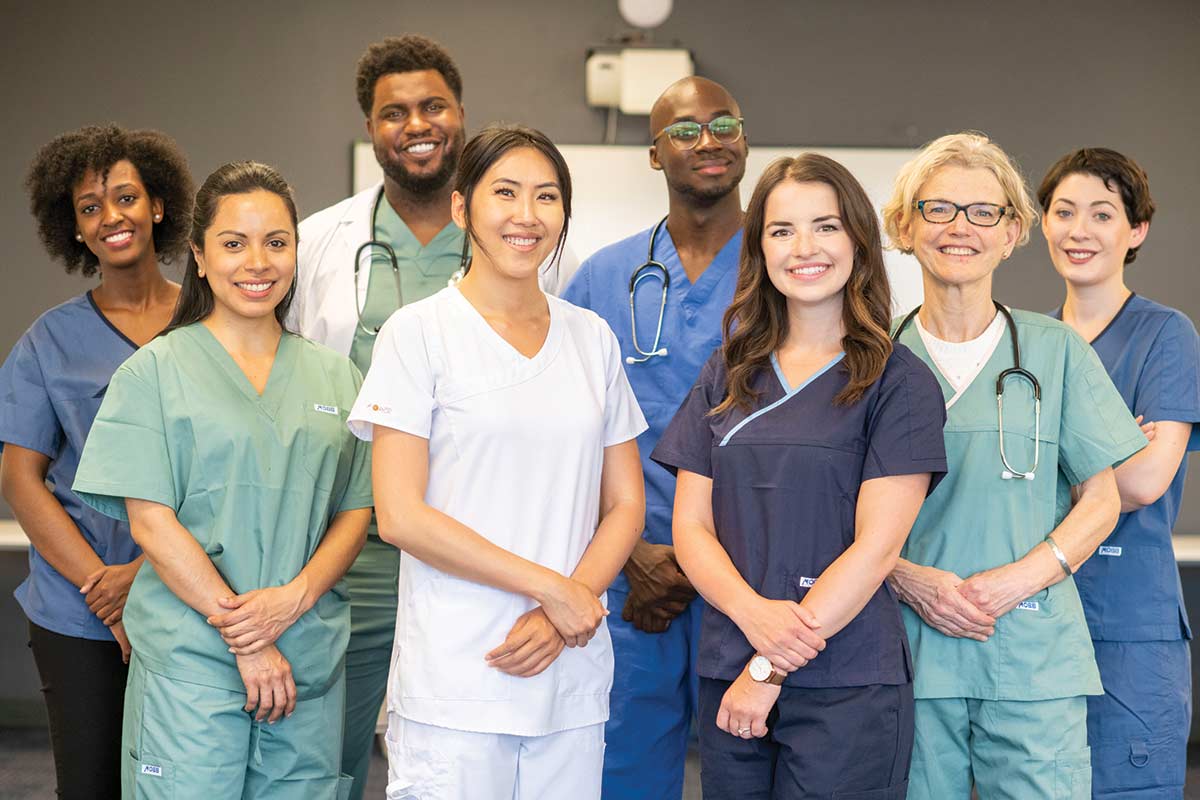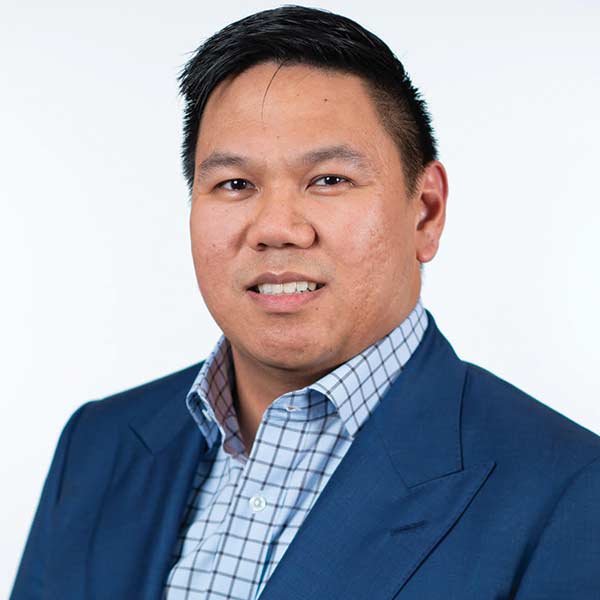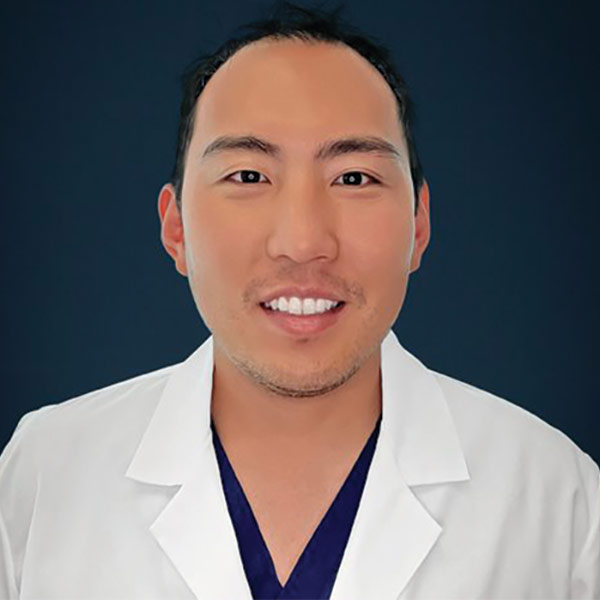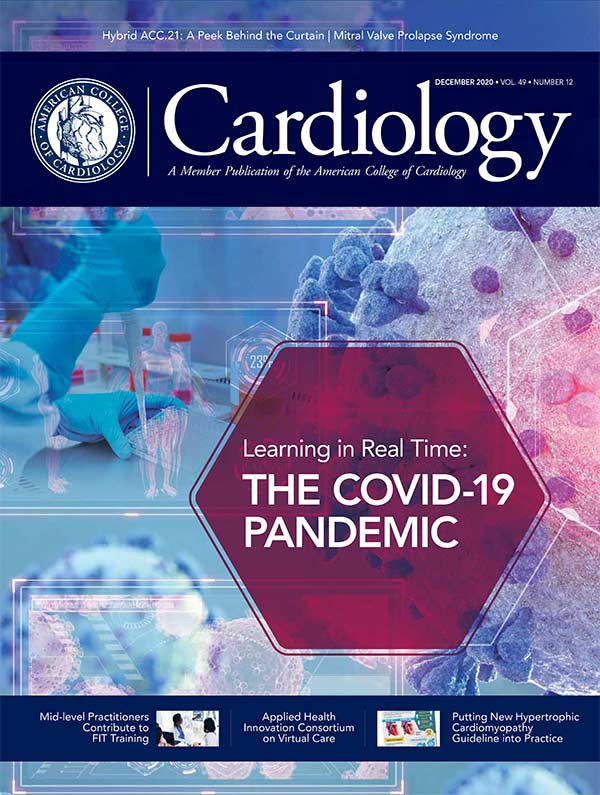For the FITs | The Hidden Value of Advanced Practice Nurses in Cardiovascular Training

When it comes to frontline health care professionals, we commonly think of nurses and doctors. However, in the U.S. there is a third group of providers who are frequently under-recognized yet growing in importance: the advanced practice nurse.
Consisting of nurse practitioners (NPs) and physician assistants, advanced practice nurses have become an integral part of patient care, especially during the COVID-19 pandemic.
In academic institutions, advanced practice nurses often work alongside medical residents and fellows, and overlap in responsibilities ranging from primary clinician on the medical floors to proceduralist in the cardiac catheterization laboratory (cath lab).
Throughout these interactions, an unspoken exchange of knowledge and skill often occurs as advanced practice nurses and house staff physicians partner together to provide patient care.
In this article, I share a conversation with Jessica A. Lim, APRN, NP, and Derek A. Pineda, RN, NP, MS, nurse practitioners who work at the Zena and Michael A. Weiner Cardiovascular Institute at Mount Sinai Hospital in New York City, regarding the underappreciated educational impact that clinical fellows and NPs provide for one another at cardiovascular training programs.


Chu: Derek and Jessica, thank you for sharing your insights. How long have you been working in health care and how much of that time has been with physicians in training?
Pineda: I started in health care in 2007 and worked as a nurse in several cardiac cath labs since 2009. After obtaining my NP degree, I became an advanced practice provider at Mount Sinai Hospital in 2015, primarily working in the cardiac cath lab.
For over a decade, since starting my first job as a nurse in a large academic institution, I've regularly worked with physicians in training and since becoming an NP I've worked more closely with fellows in training (FITs).
Lim: For the first seven years of my nursing career, after graduating in 2009, I worked in a small community hospital in New Jersey. I worked in critical care services including telemetry, step-down and intensive care units, and on the rapid response team, working only with attending physicians.
After becoming a nurse practitioner, I moved to New York City and I've worked at Mount Sinai since 2018. I oversee the periprocedural and follow-up care of patients undergoing interventional cardiology procedures and work closely with cardiology and interventional fellows.
Chu: What educational value have cardiology fellows provided you?
Pineda: Cardiology fellows have offered a great deal of training to advance my career. From furthering my knowledge in cardiology and other disease states, physical assessment, diagnostic study interpretation, procedure case planning tailored to each patient's history and presentation, and overall safe delivery of care, working alongside trainees has provided significant educational value to my own practice.
Lim: Being in an academic institution, there's always up-to-date information related to cardiology. I often go to the cardiology fellow if I have general questions about the management of my clinic patients. It's useful to bounce ideas off each other.
For example, I may ask which medication they'd start first if my patient's blood pressure is elevated and they have a particular medical history. Of course, I go back to my attending for the final decision, but the fellows are always a big help in terms of the most current treatment plan or newest medication on the market.
Chu: What educational value do you think you've provided to cardiology fellows?
Lim: A cardiology fellow is only in the institution for a short period of time. The time in a specific rotation is even shorter, whether it's the cath lab, electrophysiology lab, heart failure, CCU, etc. However, I spend all my time with the interventional cardiology attendings.
I know the style of certain attendings, what they like, dislike and their expectations. I can intercept the fellow's mistake before it happens, especially if I know the mistake will turn into a huge ordeal.
I want to make sure that everything runs smoothly. After all, the less stress that occurs the better the workplace is for everyone.
Pineda: With new interventional FITs every July, one of the biggest hurdles to their training is learning to navigate the cath lab and the institution overall. From simple things like attending phone numbers all the way to teaching them how to use the manifold or walking them through the steps of cath procedure or completing the procedure report, I feel that advanced practice nurses in large teaching hospitals are a great tool to complement their education from the attending physicians.
Advanced practice nurses are experts with the workflow in their units. Learning from them can make fellows more efficient in their roles, allowing them to focus more of their time on becoming an interventional cardiologist.
Most importantly, advanced practice nurses are one of the keys to enhancing patient safety with FITs performing procedures. Especially with an experienced advanced practice nurse, we often know what's safe for the patient and know when to intervene should a potential safety issue arise.
Chu: As you've gained more experience over the years, have you felt differently about the role of cardiology fellows in your practice?
Pineda: I've worked with more than 75 interventional cardiology fellows. It's always great to see their skills grow from their first few weeks all the way through to graduation.
Even more exciting is to see or hear how they're doing as an attending or even reading articles and studies they've published. Knowing that, I take joy in working alongside the FITs.
I feel we often have a synergistic give-and-take relationship in learning to be better providers. Thus, I strive to set the tone to provide the best care for our patients. While I know the fellows are learning to perform procedures from our attendings, some may take a page or two from my own practice.
I'm always happy to take a minute to discuss the way I may do a particular task in hopes I'm able to teach our fellow something, or better yet that I may even learn a better way to do that same task.
Lim: Now that I'm starting my third year here, I've celebrated the graduation of the first group of general cardiology fellows I met and seen them transition to becoming an attending or starting specialized fellowship. I feel proud to see them in their new positions.
Honestly, I really don't know why I didn't start at an academic institution earlier. I love seeing new people come in and out of the cath lab and learning together. The cardiology fellows are somewhat of a "buffer" between me and my attendings with the management of my patients.
The fellows don't mind sitting down and taking the time to make sure I understand certain topics. They've been incredibly helpful in making me a better practitioner too.
Chu: What is the one thing you'd like cardiology fellows to take away from this conversation?
Lim: Work hard, be kind and stay humble. Listen to the supportive staff around you, whether it's a NP, physician assistant, nurse or lab tech. We're all here to learn and work together. Nurses are at the bedsides of the patient for longer amounts of the day. It's our job to be the patient's advocate, so if we say something, take it into consideration for the safety of the patient.
Pineda: Overall, collaboration with all the individuals in the multidisciplinary team is one of the biggest takeaways. Attendings, NPs, physician assistants, nurses and technicians are all here to take care of the patients to the best of their abilities.
Remember that each team member is an expert in their own field. Listening and considering everyone's input in the delivery of care for the patient will ultimately allow FITs to learn some of the best tips and tricks from those who have spent years working with the attendings.
Also, we're learning too, so if you can spend a minute to enlighten your team members, please do so.
Chu: What's the one thing you'd like nurse practitioners to take away?
Pineda: That fellows are here to learn. Have patience for them as they learn. Keep an eye on them to make sure they are practicing safely. Guide them to make sure they stay on track.
Utilize their knowledge to further enrich yours. Don't forget that even though they are here to learn from the attendings, there are many things they will learn from advanced practice nurses, nurses and technicians too. Also consider that the fellows may also want to teach you a thing or two they think will be beneficial to you.
Lim: Use your gift of being a advanced practice nurse. We're known to have the "brains of a doctor and the heart of a nurse." Don't forget to always advocate for your patient and bring your concerns to the fellow or attending.
Be open to teaching those around you, whether it's a physician, NP, physician assistant, nurse or tech. Also be open to learning from those around you. No one knows everything and the beauty of medicine is that we're a team. We're all here together to provide the best outcome for the patient.
Clinical Topics: COVID-19 Hub, Diabetes and Cardiometabolic Disease, Prevention, Exercise
Keywords: ACC Publications, Cardiology Magazine, Fellowships and Scholarships, COVID-19, Hospital Rapid Response Team, Patient Safety, Reading, Walking, Hospitals, Community, Aftercare, Workflow, Workplace, Blood Pressure
< Back to Listings



